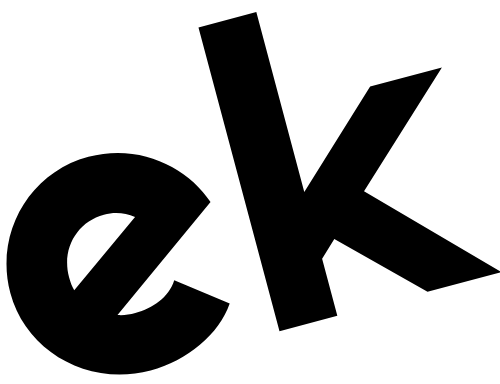In Thursday’s federal election fraud trial against Donald Trump — the first proceeding before Judge Tanya Chitkin since the Supreme Court granted him some immunity from prosecution — the trial judge did not finalize a schedule for next steps in the case. , but her preview has her wondering how the case should proceed.
He was skeptical of the Trump team’s request to first decide whether charges related to then-Vice President Mike Pence in the indictment were exempt, and Chitkin repeatedly emphasized the discretion he believed he had. How does one organize the proceedings in their courtroom?
Although Thursday’s hour-and-15-minute hearing was primarily about the process, a quick back-and-forth with Trump’s attorney turned the spotlight on how the 2024 election is shaping up on the case.
Chitkan will take further steps on Thursday as soon as possible.
The judge did not issue an order from the bench but said she plans to submit a scheduling order as soon as possible, which she said could be as soon as Thursday. This may reveal the steps taken in this matter before the November elections.
During Thursday’s hearing, prosecutors explained why they wanted a chance to file an opening brief that would argue why they believe their new indictment complies with the Supreme Court’s immunity ruling. . Trump’s lawyers argued against this and suggested a longer schedule.
Chitkin pushed prosecutor Thomas Windom for dates on how soon the special counsel’s office could file a proposed brief to defend the new indictment. Windom deferred to the judge – not putting a date on the record herself – while telling the judge she would need two to three weeks, meaning the end of this month. We actually have to write this thing,” Windom said, prompting Chitkin to joke that Windom might have it in his binder.
“I’d be surprised by that,” Windom replied.
At the same time, he emphasized that prosecutors will leave the exact time “to the discretion of the court.”
In the brief, Windom said prosecutors “will present to the court” why the conduct is “private in nature and not subject to immunity.”
The election hearing is coming up, but Chitkin says she’s not considering it, as the judge argued with Trump lawyer John Lauro to allow prosecutors to defend their immunity brief. How fast it should proceed, he finally addressed the political elephant in the courtroom
What: Presidential election. After going back and forth with the judge on what should be the procedure for deciding immunity issues in the case, Lauro acknowledged that one of his team’s concerns about the prosecution’s proposed approach is that the court will be published on public record.
The procedural dispute boils down to who files their immunity brief first and when that brief is filed.
“This court has nothing to do with election schedules,” Chitkin pushed back.
“We’re talking about the presidency of the United States,” Lauro said.
“I’m not talking about the presidency,” Chitkin said. “I’m talking about the four-count indictment.”
He added, “The subtext of your argument here about these sensitive times … it strikes me that what you’re trying to do is affect the presentation of this case to influence the election.” Don’t fall,” he added. Lauro denied that his arguments were connected to the presidential campaign.
“The rulings here will not only affect this case, it will affect the Republic going forward,” Lauro said. Trump has repeatedly complained that the new indictment filed last week was an attempt to interfere in the campaign — just as he complained about his trial in New York in the spring — but Chitkin’s comments signaled that he Will not wait after November 5th before moving. After the Supreme Court’s immunity decision, the issues to be dealt with in the case are to be proceeded with.
‘Exercise in futility’ to fix trial date
At the end of Thursday’s hearing, Chitkin acknowledged the elephant in the room: There are still a number of issues to be resolved in order to set a trial date. “It’s kind of an exercise in futility at this point,” he said, noting that any decision she makes on immunity will be appealed, which means a trial during the appeals process. Will stop again.
Both Trump’s lawyers and prosecutors agreed it was too early to set a trial date. Chitkin plans to issue an order with next steps in the case to pursue the immunity issue, and that could come as soon as late Thursday, he said. Of course, it’s not just the appeals process that makes future trials so complicated. If Trump wins the 2024 election, he is ready to drop the special counsel and the case against him entirely once he returns to office.
A cool reception to Trump’s claims to be the first to end Pence’s behavior Chitkin didn’t seem particularly convinced that, when deciding the immunity issues in the case, she should first deal specifically with the claims related to Pence.
Trump’s lawyers aggressively argued, first presented in their filing late last week, that the entire case should fall if Trump’s conversations with the vice president are considered immunity from prosecution. At Thursday’s hearing, Lauro focused specifically on that argument and tried to convince the judge that dealing with Pence’s conduct as a standalone issue would be a more efficient way of doing things. He claimed it would save the court from lengthy briefing on other charges in the indictment if it decides that the entire case should be dismissed on Pence’s count alone. He also insisted that the Supreme Court’s finding that Pence’s conduct was fatal to the impeachment, overturning Chitkin’s claim.
“The ruler is clean, clear,” Loro said with a chuckle.
Chitkin takes swipe at Florida judge’s decision to dismiss classified documents case





